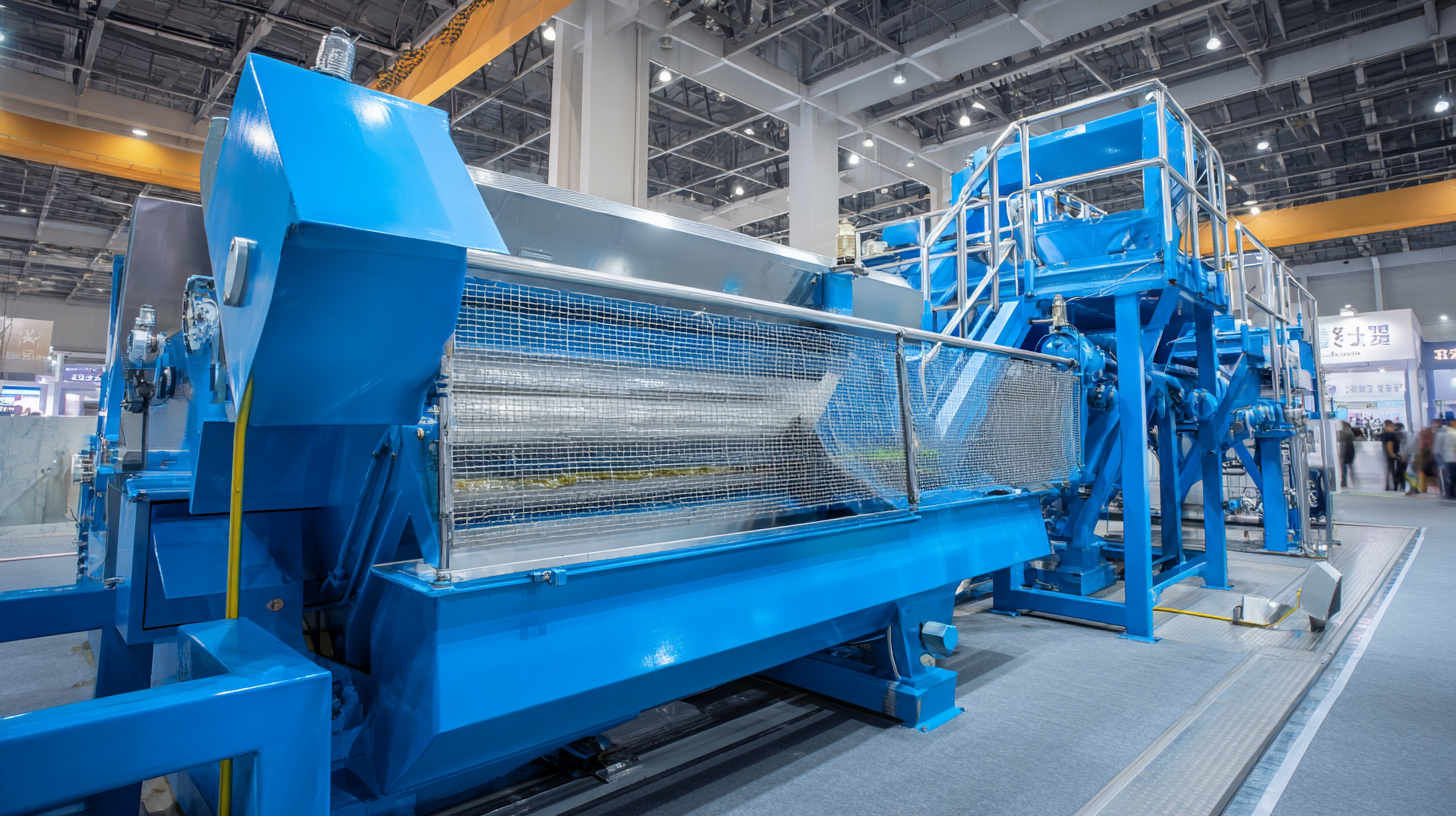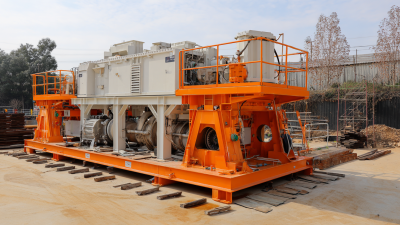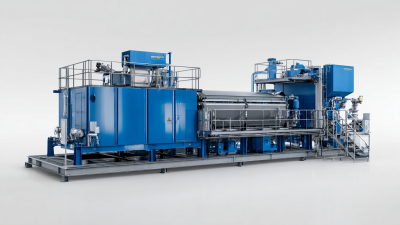The dewatering press machine industry is poised for significant advancements as we approach the 138th Canton Fair in China in 2025. According to recent market analysis, the global dewatering machine market is expected to grow at a CAGR of 5.7%, reaching approximately $6.8 billion by 2027. This growth is driven by increasing wastewater management regulations and the demand for efficient dewatering solutions across various sectors, including mining, food processing, and municipal wastewater treatment. As environmental sustainability becomes a central focus for industries worldwide, the role of dewatering press machines in reducing waste and enhancing resource recovery is becoming more prominent.
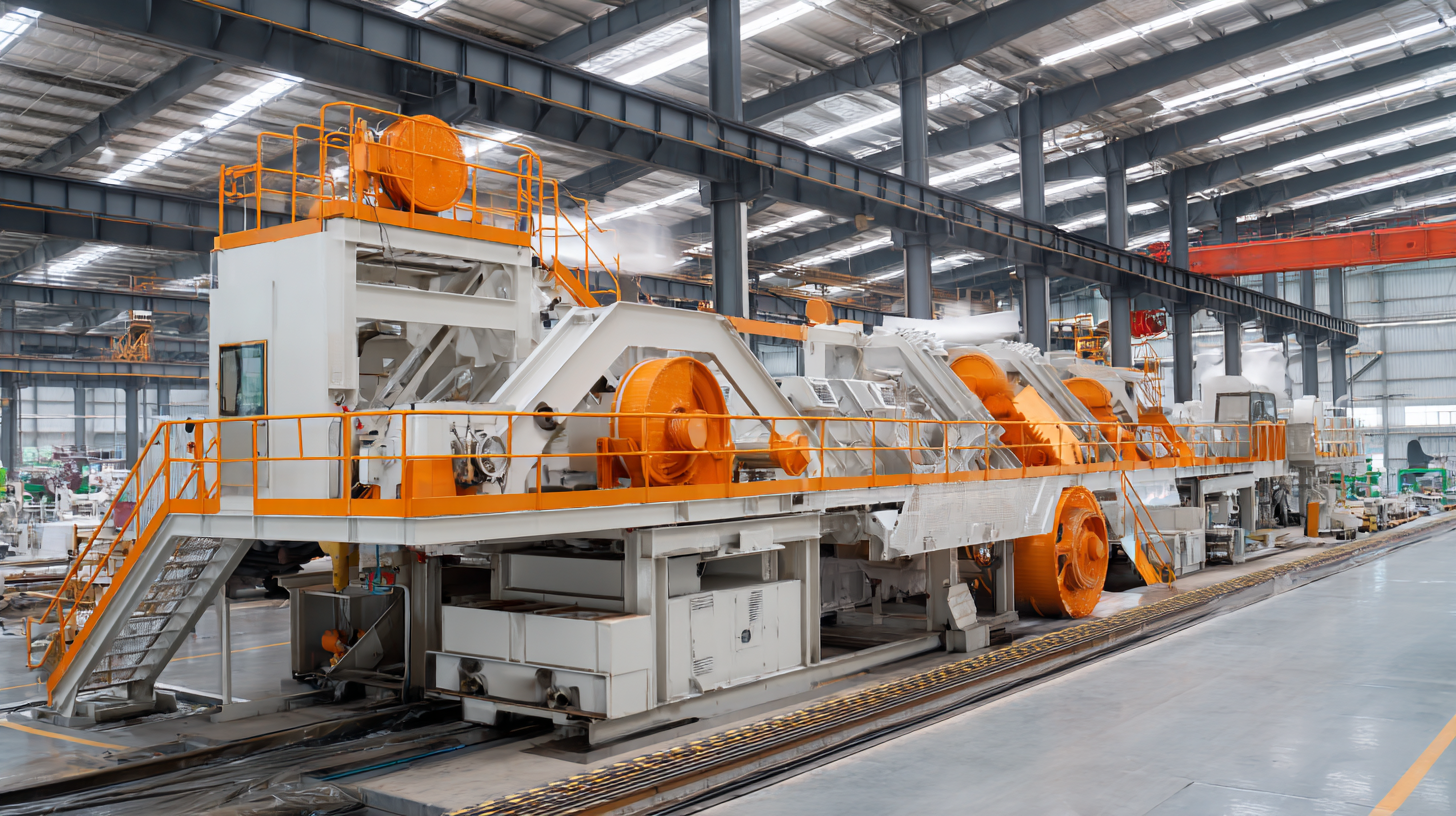
The upcoming Canton Fair will serve as a pivotal platform for showcasing innovations and fostering partnerships in this crucial sector, highlighting the latest technological advancements and their implications for future development.
The 138th Canton Fair, which kicked off on October 15, 2025, serves as a crucial platform for evaluating future market potential in the dewatering press machine industry. With its reputation as a barometer for international trade, the Fair attracts a diverse array of businesses striving to secure their foothold in emerging markets. The data reveals a shift in focus towards new opportunities, especially as foreign trade companies seek to enhance their operational efficiency and ensure secure transactions across the Asia, Africa, and Latin America regions.
Amid ongoing technological innovations displayed at the Fair, the notable presence of service robots and advanced machinery underscores the increasing integration of automation in the manufacturing sector. This trend is particularly relevant for dewatering press machine manufacturers, who are likely to benefit from advancements in efficiency and effectiveness as they cater to the growing demand. As exhibitors and buyers engage over these innovations, insights drawn from the Fair could determine the trajectory for the dewatering press machine market potential in the near future, aligning with the global manufacturing shifts anticipated in 2025.
This chart illustrates the projected market potential for dewatering press machines from 2023 to 2025, indicating significant growth as highlighted at the 138th Canton Fair in China.
The dewatering press machine industry is on the brink of a technological revolution, particularly as the 138th Canton Fair in China aims to showcase innovative advancements by 2025. Companies are increasingly adopting smart technologies such as IoT and AI to enhance the operational efficiency of dewatering presses. These innovations allow for real-time monitoring and predictive maintenance, minimizing downtime and improving the overall performance of machinery. The integration of automation with user-friendly interfaces is expected to simplify the user experience, enabling operators to maximize productivity while reducing labor costs.
Moreover, advancements in materials science are paving the way for the development of more efficient dewatering press machines. Innovative materials not only improve the durability and longevity of the machines but also enhance their capacity to process varied waste types. This evolution is driven by the need for sustainable waste management solutions and stricter environmental regulations. As companies strive for greener practices, the focus on energy-efficient technologies and eco-friendly materials will become paramount, positioning the dewatering press machine industry for substantial growth leading up to 2025.
| Innovation Type | Expected Impact | Implementation Year | Efficiency Gain (%) | Market Adoption Rate (%) |
|---|---|---|---|---|
| AI Integration | Enhanced automation and predictive maintenance | 2025 | 15% | 40% |
| Smart Sensors | Real-time monitoring and data analysis | 2025 | 20% | 35% |
| Eco-Friendly Materials | Reduced environmental impact and costs | 2024 | 10% | 50% |
| Modular Design | Flexible upgrades and maintenance | 2025 | 12% | 30% |
| Telematics | Remote management and optimization | 2025 | 18% | 25% |
As the dewatering press machine industry heads towards 2025, environmental regulations are set to play a pivotal role in shaping its future trends. The growing emphasis on sustainability and waste reduction has triggered manufacturers to innovate and adapt their technologies to comply with stricter standards. These regulations not only focus on emissions and waste discharge but also encourage the adoption of energy-efficient processes. As a result, businesses in this sector are increasingly investing in research and development to create more eco-friendly and efficient dewatering solutions.
Moreover, the impact of environmental regulations is fostering collaboration between various stakeholders, including manufacturers, regulatory bodies, and environmental organizations. This collaboration aims to establish industry benchmarks and best practices that promote not only regulatory compliance but also overall sustainability. Companies that proactively align their operations with these regulations will likely gain a competitive advantage, leading to a transformative shift in the dewatering press machine market. Innovations fueled by regulatory pressures will ultimately benefit the industry by promoting greener technologies and enhancing operational efficiency.
The comparative analysis of the global and Chinese dewatering press machine markets in 2025 reveals significant trends and forecasts driven by technological advancements and increasing industrial demand. As industries worldwide prioritize efficient waste management practices, the global dewatering press machine market is projected to experience substantial growth. The adoption of innovative technologies to enhance the efficiency and performance of dewatering machines will play a crucial role in shaping market dynamics. This growth is expected to be particularly pronounced in the Chinese market, where rapid industrialization and urbanization are creating a heightened need for efficient wastewater treatment systems.
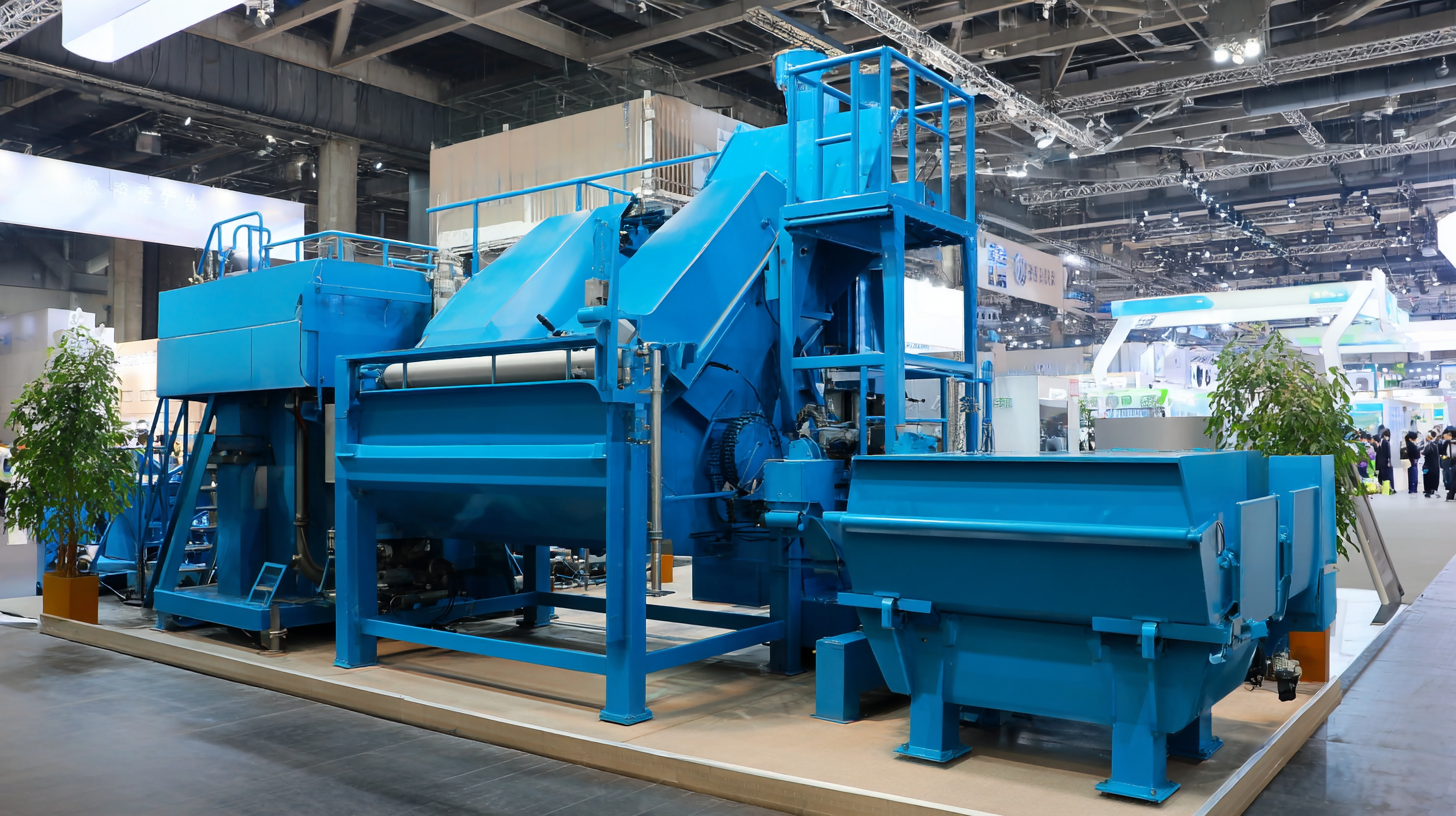
In contrast, the global market for dewatering press machines faces unique challenges and opportunities. Key players are focusing on improving product offerings to cater to diverse applications, from construction to food processing. Moreover, the ongoing U.S.-China trade relationship adds a layer of complexity, influencing supply chains and pricing strategies. Understanding these market dynamics in both the global and Chinese contexts will be essential for industry stakeholders to navigate the competitive landscape effectively and capitalize on emerging opportunities.
As the demand for efficient water management technologies continues to rise, the dewatering press machine industry is poised for significant growth by 2025. Emerging applications for these machines can be observed across various sectors, including agriculture, wastewater treatment, and food processing. In agriculture, dewatering presses are increasingly utilized for processing organic waste, enabling farmers to convert by-products into valuable compost while minimizing water content. This not only enhances the sustainability of farming practices but also promotes a circular economy within the agricultural sector.
In the wastewater treatment sector, advancements in dewatering press technologies are facilitating the efficient separation of solids and liquids, leading to more effective sludge management. As regulations surrounding waste disposal become stricter, municipalities and industries are adopting innovative dewatering solutions to meet compliance requirements. Furthermore, the food processing industry is recognizing the importance of dewatering presses for improving product quality and shelf life. The ability to reduce moisture in products like fruits and vegetables directly impacts their transport and storage efficiency, highlighting the growing relevance of dewatering machines in this competitive landscape.
Overall, the versatility and efficiency of dewatering press machines are expected to drive their adoption across these emerging sectors, contributing to enhanced resource management and waste reduction efforts globally.
